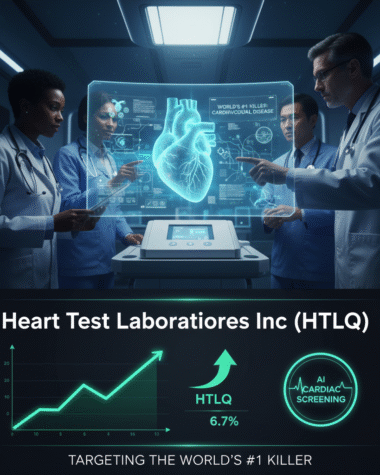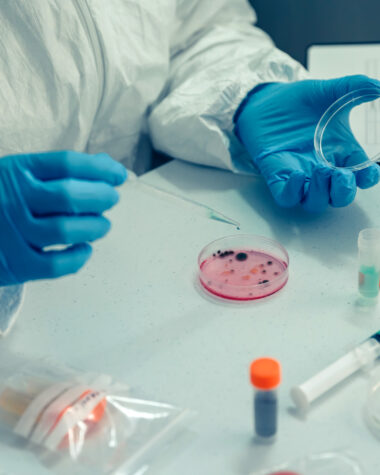Exicure, Inc. (NASDAQ:XCUR) is a biotechnology company that has undergone a significant strategic transformation to focus on advancing innovative therapies for hematologic malignancies and other serious conditions with high unmet medical needs. Originally established as a pioneer in developing nucleic acid therapeutics through its proprietary spherical nucleic acid technology platform, Exicure has shifted its strategy toward acquiring and developing late-stage clinical assets that offer more immediate opportunities for value creation. The company’s headquarters are located in Redwood City, California, and it is publicly traded on the Nasdaq under the ticker symbol XCUR.
The centerpiece of Exicure’s current pipeline is GPC‑100 (burixafor), a small molecule inhibitor of CXCR4, a receptor known to play a critical role in cancer cell trafficking and stem cell mobilization. GPC‑100 was originally developed by Taigen and later acquired through Exicure’s acquisition of GPCR Therapeutics USA. This asset has shown encouraging results in early clinical studies, including a Phase 1 trial in acute myeloid leukemia (AML) and ongoing Phase 2 evaluation in multiple myeloma patients undergoing autologous stem cell transplant. GPC‑100’s unique ability to mobilize stem cells rapidly and effectively could make it a best‑in‑class option compared to existing treatments that require more complex administration.
Exicure’s long-term strategy is built around leveraging GPC‑100 across a range of indications beyond multiple myeloma and AML. The company is evaluating opportunities in sickle cell disease, pediatric oncology, and cell and gene therapy applications where efficient stem cell mobilization is crucial for treatment success. Preclinical research conducted in collaboration with City of Hope demonstrated that GPC‑100, when combined with beta‑2 adrenergic receptor blockade, improved chemotherapy responses, further highlighting its potential as a chemosensitizer in AML and other cancers.
The company has also taken steps to secure a robust intellectual property portfolio, with patents granted in the United States, Japan, Australia, and Taiwan to protect the therapeutic applications of GPC‑100. This patent estate strengthens Exicure’s competitive advantage as it works to expand the clinical utility of its lead asset. With an ongoing Phase 2 trial in multiple myeloma expected to report topline results in late 2025 and preparations underway for a new AML trial, Exicure is positioned to deliver important value-driving milestones in the near future.
By restructuring its operations and focusing on a late-stage clinical asset with broad therapeutic potential, Exicure has repositioned itself as a high-risk, high-reward biotechnology company with the potential to disrupt treatment paradigms in hematology and oncology. The combination of promising clinical data, a growing intellectual property portfolio, and upcoming pivotal milestones provides a compelling foundation for long-term growth and shareholder value creation.
Multiple Myeloma Phase 2 Trial Adds Momentum to Clinical Pipeline
While preparing for AML clinical development, Exicure is also advancing GPC‑100 in a Phase 2 trial for multiple myeloma patients undergoing autologous stem cell transplant (ASCT). The drug’s CXCR4 inhibition enables highly efficient stem cell mobilization, potentially outperforming existing agents such as plerixafor and motixafortide. The trial, registered as NCT05561751, is expected to yield topline results in the fourth quarter of 2025, which could serve as a significant value‑inflection event for the company. Early data have already demonstrated GPC‑100’s ability to achieve rapid and robust stem cell mobilization with a favorable safety profile, an advantage that could make the drug a best‑in‑class option for transplant settings.
The success of this ongoing Phase 2 trial would not only position GPC‑100 as a commercially viable therapy for multiple myeloma but also validate its potential across other indications where stem cell mobilization is crucial, including sickle cell disease, pediatric oncology, and the rapidly growing field of cell and gene therapies.

CHECK THIS OUT: Exact Sciences (EXAS) Just Made Cancer Detection 100x Easier! and Soleno Therapeutics (SLNO): The Biotech Company That Could Make You Rich.
Broad Pipeline Expansion Supported by Robust Intellectual Property
Exicure has been aggressively building its patent portfolio to protect the therapeutic potential of GPC‑100. The company’s intellectual property estate now includes patents granted in the United States, Japan, Australia, and Taiwan, covering key aspects of CXCR4 inhibition and dual‑target approaches. This IP protection strengthens Exicure’s competitive advantage as it prepares to expand GPC‑100 into multiple high‑value indications.
In addition to AML and multiple myeloma, Exicure is evaluating further opportunities in sickle cell disease and pediatric oncology, as well as applications in cell and gene therapy, where stem cell mobilization is a critical step in treatment success. Each of these markets represents a substantial commercial opportunity, and positive trial outcomes could open the door to lucrative partnership deals and licensing agreements.
Strategic Shift Positions Exicure for Long-Term Growth
Historically, Exicure was an early‑stage biotech focused on nucleic acid therapeutics. However, following a corporate restructuring and the suspension of its previous development activities, the company shifted its focus toward maximizing shareholder value through the development of high‑potential assets like GPC‑100. The acquisition of GPCR Therapeutics USA provided Exicure with a late‑stage clinical asset, enabling the company to pursue near‑term value creation rather than remaining a preclinical platform‑based enterprise.
This strategic pivot, combined with strong clinical data, a growing IP portfolio, and upcoming clinical milestones, underscores why many investors view Exicure as a high‑risk, high‑reward biotech play with the potential for significant upside if execution remains on track. The dual catalysts of Phase 2 results in multiple myeloma and the planned AML clinical trial launch in 2025 position Exicure for potentially transformative growth in the years ahead.
A High-Conviction Opportunity in Hematologic Oncology and Beyond
With its pipeline now centered on a differentiated CXCR4 inhibitor, Exicure has the potential to disrupt multiple treatment landscapes, from stem cell transplantation to AML chemosensitization. The company’s ability to leverage GPC‑100 in diverse indications, backed by expanding patent protection and promising clinical data, provides a compelling investment narrative. If the upcoming trial milestones produce positive results, Exicure could secure strategic partnerships or licensing deals that drive substantial shareholder value.
For speculative investors who understand the risks of early-stage biotech investing, Exicure represents an intriguing opportunity. Its combination of promising science, clinical momentum, and a clear focus on value‑driving milestones creates a foundation for long‑term upside potential.
READ ALSO: Johnson & Johnson (JNJ) can be the Next Trillion-Dollar Stock and Boston Scientific (BSX) Just Signed a $45M Deal—Here’s What It Means for Investors.








